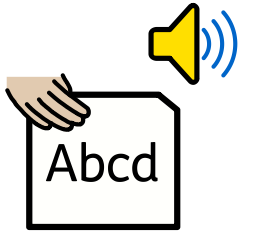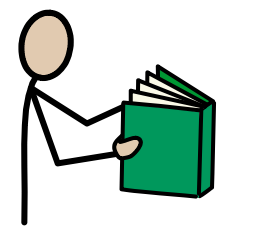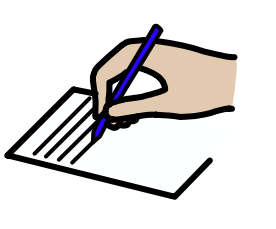English
English

English has a pre-eminent place in both education and society. A high-quality English education is the foundation to teaching pupils to speak and write fluently so that they can communicate their ideas and emotions to others and through their reading and listening, others can communicate with them. More than any other subject, English – and especially reading – gives pupils access to the rest of the curriculum and is fundamental to their educational success. Through studying literature, pupils’ eyes are opened to human experience; they explore meaning and ambiguity, as well as the beauty and power of language. English also has a strong creative and expressive dimension (English Research Review, 2021).
At Godstone Primary and Nursery School, we follow a ‘talk for writing’ style approach in the teaching of writing across the school to motivate, inspire and engage the children and to instil in the children a real sense of enjoyment and passion for the subject. Accomplished word reading is taught to children in Reception, Year 1 and Year 2 (until required) through our systematic, synthetic phonics programme (SSP), Little Wandle Letters and Sounds Revised. Following this, the children are taught reading explicitly three times a week through a skills-focused approach.
Phonics

Intent
- To draw on the latest research in learning to create highly competent readers following the Little Wandle letters and Sounds Revised Scheme to ensure children
- For the children to have a strong phonological knowledge of GPC’s as well as blending and segmenting strategies to build up on in later reading and writing experiences.
- To ensure keep up and rapid catch up are implemented to plug the retention gaps in previous phonics teaching.
- To increase the percentage of children passing the phonics screening in Year One from 71% in 2019 to 95% in 2024.
- To create confident, fluent readers to enable the children to succeed in all areas of the curriculum.
- To foster a love of reading in children from a young age, through modelling and reading for pleasure in each class.
Implementation
- Phonics should be taught as a whole class daily in Nursery to Year Two autumn term following the online lesson plans, resources and content to be accessed via the Little Wandle Letters and Sounds website.
- Teachers to plan and implement teaching, following the programme with fidelity.
- Children are assessed half termly to match them to the correct reading books.
- Assessments are analysed to identify gaps for whole class focus teaching, group and individual keep-up or rapid catch up if in Year Two Spring One or above.
- Oral blending and initial sound recognition begins at Nursery level following the Foundations for phonics Little Wandle scheme.
- Ongoing training and support for staff to use LWLSR effectively for whole class, group and individuals.
- Reading practice groups take place three times a week in Reception, Year One, Year 2 until Spring term and with rapid catch up groups.
- Reading books are phonetically decodable and matched to the children’s phonics ability.
- Teachers and TAs to watch the ‘how to’ videos for ongoing training.
- Reception and Year One teachers to lead parent workshops.
- Monitor reading books and other resources.
- Monitoring and coaching for whole class phonics, ‘keep up’ rapid catch up and reading groups.
- Children are encouraged to take home sharing books and other books to read for pleasure as well as their group reading book.
Impact
- Progression of phonics skills in the curriculum from Nursery through the rest of the school.
- Staff signposted to developments in the Little Wandle Letters and sounds curriculum and new resources to support teaching.
- Increased confidence in staff in the delivery of the scheme in whole class phonics teaching, keep up, rapid catch up and reading groups.
- Increased phonics screening from 71% in 2019 to 83% in 2022.
- Increase in the percentage of GPCs the children know and can remember at the end of each half term.
- Fluency in reading in general is improved.
- Children who are confident to use their secure phonics knowledge to blend and segment words for reading and spelling.
- Confident, fluent readers with a love of reading.
- Improved KS1 and KS2 SATs Reading results.
- Greater confidence and attainment in all subject areas.
- Staff signposted to developments in the Little Wandle Letters and sounds curriculum and new resources to support teaching.
Reading

Intent
- To provide all children with a rich and varied reading curriculum focused around achieving the expected standards as laid out in the Educational Programmes (EYFS) and National Curriculum (Y1-Y6).
- To encourage all children to read widely across both fiction and non-fiction to develop knowledge, understanding and appreciation of themselves, the world in which they live and the wider curriculum.
- To expose children to a range of high-quality texts to develop their expressive and receptive vocabulary.
- To develop the children’s competence in both word reading and comprehension in order to read easily, fluently and with good understanding.
- To promote and instil a ‘love of literature’ in all of our children, whereby they read widely and often for both pleasure and information.
- To promote high standards of language and literacy by best practice teaching and learning that follows a clear pathway of progression.
- To provide all children with the tools that they need to participate fully as a member of society.
- To ensure for accurate assessment across year groups/key stages.
Implementation
- Reading taught explicitly three times per week (EYFS/KS1 Little Wandle Letters and Sounds Revised; KS2 skills-focused linked to curriculum statements).
- Skills-focussed for Key Stage 1 and Key Stage 2:
- Key Stage 1: Vcabulary Victor; Sequencing Suki; Predicting Pip; Inference Iggy; Rex Retriever.
- Key Stage 2: Vcabulary Victor; Predicting Pip; Inference Iggy; Rex Retriever; Summarising Sheeba; Cassie the Commentator; Arlo the Author.
- Greater focus on vocabulary in line with the school’s vocabulary drive – roll-out of ‘word rescue’ sheets.
- Exposure to both fiction and non-fiction high-quality texts each half-term. Links to wider curriculum, where possible (e.g. history and geography links).
- Following of a systematic, synthetic phonics programme (SSP) – Little Wandle Letters and Sounds Revised.
- Keep-up grups; rapid catch-up groups; reading groups (Reception, Year 1 and Year 2).
- Reading for pleasure for 15-minutes a day.
- Book bands – begin once off the Little Wandle Letters and Sounds Revised SSP.
- Reading ‘raffle’ tickets.
- Additional support for the bottom 20% of readers.
- To monitor assessment linked to Sonar Tracker statements. NFER assessments to quality assure teacher judgements/assessments on Sonar Tracker.
- The EYFS includes important and inter-connected areas of learning and development, which include ‘Communication and Language’ and ‘Literacy’. Children in EYFS engage in both continued provision and teacher-led activities and experiences.
Impact
- Raised number of children achieving the expected standard, or better, in reading at the end of each term/academic year/key stage.
- Clear and accurate assessment for reading using Sonar Tracker statements/NFER assessments.
- Explicit teaching of reading skills leading to raised attainment across the wider curriculum with reading being the gateway to all learning.
- Children with a raised awareness of the world around them, improved share in cultural experiences and bettered vocabulary to enable them to express themselves.
- Children able to read fluently, and with confidence, in any subject.
- Children to enjoy reading a wide range of texts now and beyond their time at school.
- Consistently high standards of reading following regular monitoring of teaching and learning.
Writing

Intent
- To provide all children with a rich and varied writing curriculum focused around achieving the expected standards as laid out in the Educational Programmes (EYFS) and National Curriculum (Y1-Y6).
- To nurture a culture where children take pride in their writing and are able to write clearly, accurately and coherently, adapting their language and style in and for a range of contexts, purposes and audiences.
- To promote high standards of language and literacy by best practice teaching and learning that follows a clear pathway of progression.
- To engage, motivate and inspire all children through exposure to a wide range of high-quality texts.
- To develop the children’s knowledge and understanding of key vocabulary.
- To develop the children’s knowledge and understanding of grammatical terminology.
- To support all children to speak and write fluently so that they can communicate their ideas and emotions to others.
- To provide all children with the tools that they need to participate fully as a member of society.
- To ensure for accurate assessment across year groups/key stages.
Implementation
- Use of a text-based ‘talk for writing’ approach from Years 1 to 6.
- Planning to follow a three-week learning journey involving imitation (week 1), innovation (week 2) and invention (week 3) whereby lessons are taught daily and build up to extended writing opportunities at the end of each week.
- Exposure to both fiction and non-fiction texts each half-term. Links to wider curriculum, where possible (e.g. history and geography links).
- Incorporating grammar (in which grammatical terminology is explicitly taught), drama and reading lessons (in which vocabulary is explicitly taught) within each three-week teaching cycle.
- Opportunities to plan, write, edit and improve their own and others’ writing.
- Variety of teaching and learning styles, including drama, discussions, research, video clips and extended writing.
- The EYFS includes important and inter-connected areas of learning and development, which include ‘Communication and Language’ and ‘Literacy’. Children in EYFS engage in both continued provision and teacher-led activities and experiences.
- To monitor assessment linked to Sonar Tracker statements using extended pieces of writing.
- NFER grammar assessments to quality assure teacher judgements/assessments on Sonar Tracker (Key Stage 2 only).
Impact
- Raised number of children achieving the expected standard, or better, in writing at the end of each term/academic year/Key Stage through bettered knowledge and understanding of grammatical terminology and spelling.
- Clear and accurate assessment for English writing using extended pieces of writing and Sonar Tracker.
- Explicit teaching of writing skills leading to cross-curricular writing being of the same standard as writing completed in literacy units.
- Improvements in children’s use and understanding of vocabulary, raising attainment levels and confidence across the wider curriculum.
- Children able to participate fully as a member of society using the skills they have developed and embedded to help create a lifelong love of learning.
- Closing of the attainment gap when comparing writing to that of mathematics, reading and science.
- Consistently high standards of writing following regular monitoring of teaching and learning.
